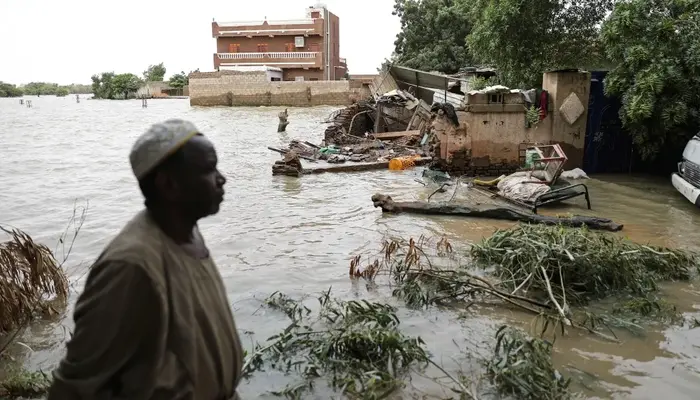South Sudan is grappling with devastating floods that have displaced nearly 380,000 people, intensifying a severe humanitarian crisis. The United Nations (UN) reports a sharp increase in malaria cases, straining the country’s fragile healthcare system. Flooding, compounded by the impact of climate change, has created critical challenges for this young nation.
Widespread Flooding and Displacement
According to the UN’s Office for the Coordination of Humanitarian Affairs (OCHA), flooding has affected around 1.4 million people across 43 counties and the contested Abyei region, which South Sudan and Sudan both claim. Among those impacted, 379,000 people have been displaced, primarily in 22 counties and Abyei. Floodwaters have inundated homes, forcing families to relocate and leaving many without shelter, food, or access to basic services.
Health System Under Pressure
The flooding has fueled a spike in malaria cases, especially in states such as Jonglei, Unity, Upper Nile, Northern Bahr el Ghazal, and Central and Western Equatoria. The rise in infections has overwhelmed South Sudan’s healthcare infrastructure, which is struggling to meet the needs of flood-affected communities. Health agencies warn that these challenges are exacerbating the humanitarian crisis and compounding the impact of flood-related displacement.
Read: Death Toll Rises as RSF Siege Grips Al Hilaliya, Sudan
Malnutrition and Food Insecurity
South Sudan’s situation is further complicated by widespread malnutrition and food insecurity. According to the UN’s World Food Programme (WFP), over seven million people in the country face severe food shortages, while 1.65 million children suffer from malnutrition. The World Bank recently highlighted how these floods have worsened an already dire humanitarian situation, adding to the effects of economic instability, food scarcity, and disease outbreaks.
Economic Challenges and Political Instability
South Sudan’s economic struggles are worsened by the recent flooding, which has disrupted critical infrastructure and livelihoods. The country, rich in oil resources, lost significant revenue when an oil export pipeline in neighboring Sudan was damaged amid ongoing conflict. This setback has compounded the nation’s economic woes, limiting funds for flood recovery and other essential services.
In addition to economic challenges, political uncertainty looms over South Sudan. The transitional government, formed under a 2018 peace agreement, recently extended its mandate, postponing elections until December 2026. This delay has sparked concerns about prolonged instability, affecting efforts to address the pressing needs of the population.
Escalating Humanitarian Needs
As humanitarian agencies continue their relief efforts, they face immense challenges in reaching those in need. The effects of climate change are evident, with flooding displacing thousands and pushing health systems to the brink. The influx of refugees fleeing Sudan’s conflict has further strained resources, adding to the urgency for coordinated humanitarian support.
The flooding in South Sudan exemplifies the challenges of climate change, economic hardship, and political instability facing the region. For the people of South Sudan, especially those displaced and affected by health crises, immediate and sustained international assistance is essential to address this crisis and prevent further loss and suffering.
Follow us on Google News, Instagram, YouTube, Facebook,Whats App, and TikTok for latest updates
